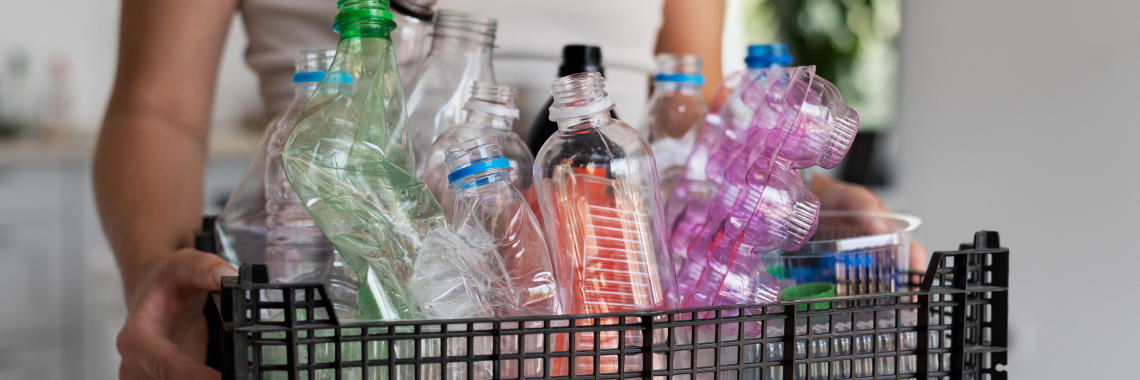In the field of sustainability and the circular economy, plastic recycling plays a crucial role. In Chile, plastic recycling is gaining momentum, thanks to concerted efforts from both the public and private sectors. Here we explore which are the most recycled plastics in the country and the initiatives that are helping to improve these practices.
Main Recycled Plastics in Chile:
Polyethylene Terephthalate (PET)
PET is one of the most recycled plastics in Chile. Primarily used in beverage bottles and food containers, PET has a recycling rate of 19% (Plastic Oceans International). Its recycling is facilitated by its wide use and the existing infrastructure for its processing. The high demand for recycled PET in the packaging industry also encourages its collection and recycling.
High Density Polyethylene (HDPE)
This plastic, present in packaging for cleaning products, detergents and certain foods, has a recycling rate of around 27% (Exposure). HDPE is valued for its durability and versatility, making it ideal for recycling and reusing in multiple applications.
Challenges and Advances in Plastic Recycling in Chile:
Despite progress, plastic recycling in Chile faces several challenges. These include the lack of adequate infrastructure and the need for greater education and awareness about recycling practices. However, initiatives such as the Extended Producer Responsibility Law (EPR) and the Recycling Fund are helping to improve recycling rates by encouraging the segregation, collection and recovery of plastic waste (Plastic Oceans International).
Initiatives and Policies to Promote Recycling:
The implementation of policies such as the REP has been essential to structure a more efficient recycling system. This law forces producers to take responsibility for the complete life cycle of their products, thus encouraging the production of packaging that is easier to recycle and the creation of efficient waste collection and processing systems (Plastic Oceans International).
The Path Towards a More Sustainable Future
Plastic recycling is essential to reduce environmental impact and move towards a circular economy model. In Chile, continued efforts to improve PET and HDPE recycling rates are a significant step towards sustainability. However, it is crucial to continue investing in infrastructure, education and policies that support these initiatives.
Mercado Circular is committed to promoting sustainable practices and reporting on advances in the circular economy in Chile and the world. Stay informed with our blogs and actively participate in the transformation towards a cleaner and more sustainable future.

